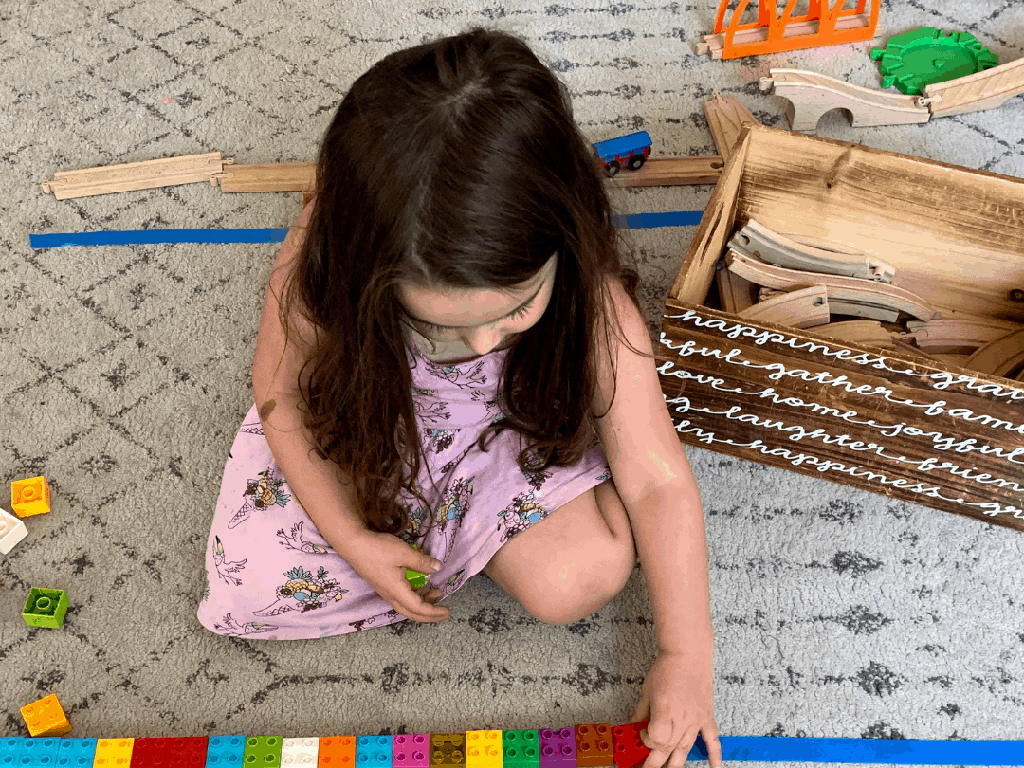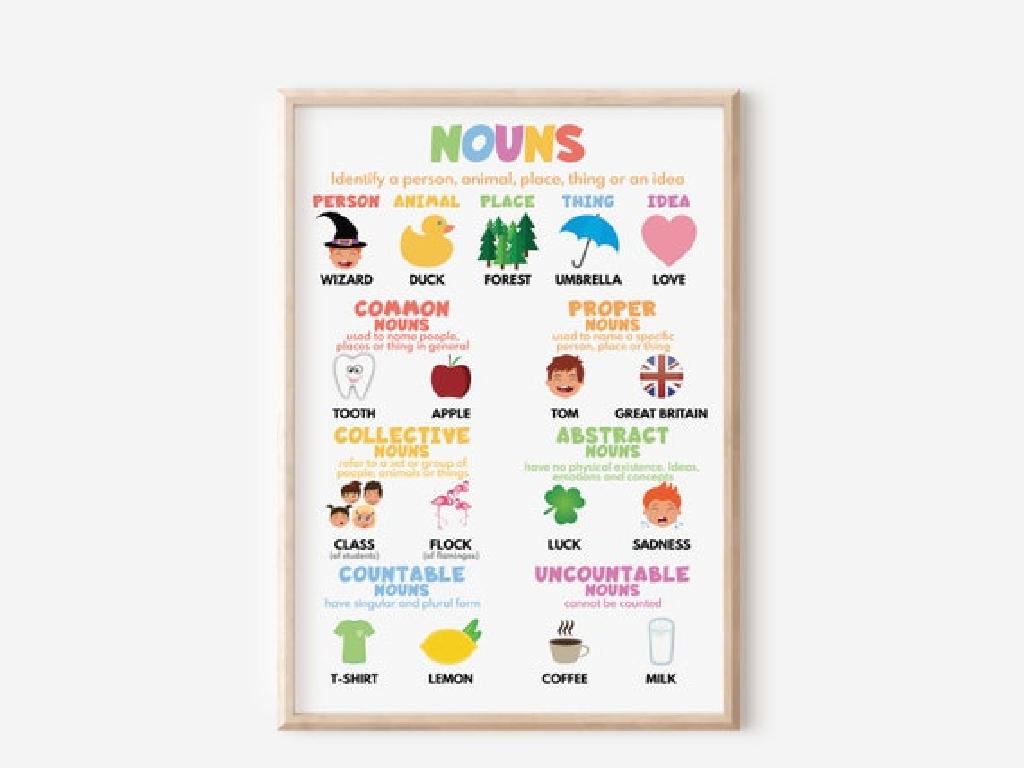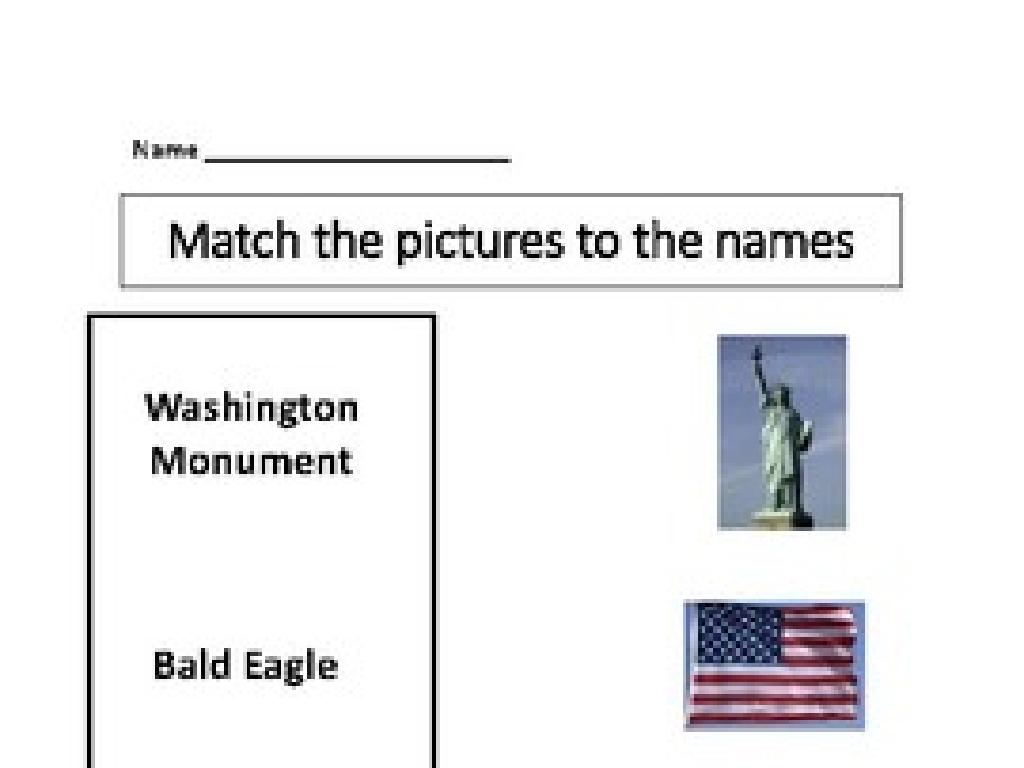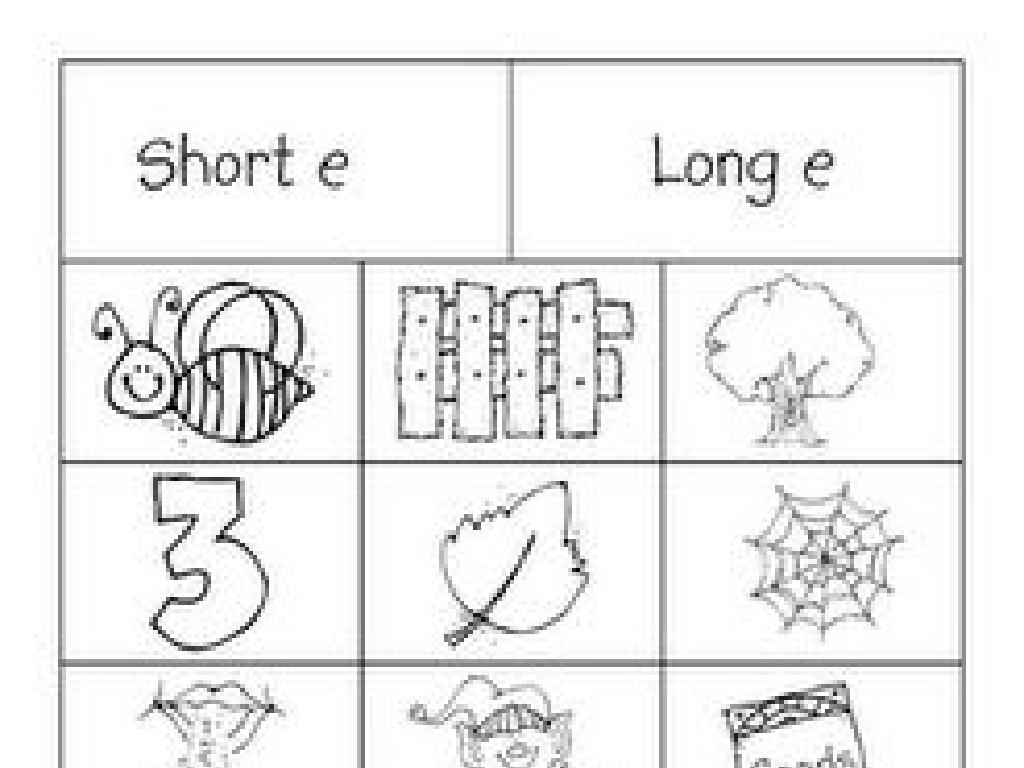Find The Short I Word
Subject: Language arts
Grade: Kindergarten
Topic: Short I
Please LOG IN to download the presentation. Access is available to registered users only.
View More Content
Welcome to Short ‘i’ Sounds!
– Greetings, little learners!
– Today’s focus: Short ‘i’ sound
– It’s like the ‘i’ in ‘fish’ or ‘wig’
– Why learn the Short ‘i’?
– It helps us read and speak correctly
– Fun with Short ‘i’ words
– We’ll play games to find Short ‘i’ words
|
Begin the class with a warm welcome to engage the students and introduce the topic of short ‘i’ sounds in a fun and exciting way. Explain the importance of the short ‘i’ sound in reading and speaking, as it is a common vowel sound in many words they will encounter. Use examples like ‘fish’ and ‘wig’ to illustrate the sound. Emphasize that understanding this sound will help them become better readers. Plan interactive activities such as word hunts or matching games where students can practice identifying the short ‘i’ sound in various words. This will reinforce their learning and make the lesson enjoyable.
Exploring the Short ‘i’ Sound
– What is the Short ‘i’ Sound?
– It’s the ‘i’ sound in ‘igloo’
– Practice saying the Short ‘i’
– Examples: ‘sit’, ‘lip’, ‘win’
– Words with the Short ‘i’ sound we use every day
– Finding Short ‘i’ words together
– We’ll look for Short ‘i’ words in a story
|
This slide introduces the concept of the Short ‘i’ sound to Kindergarten students. Start by explaining the sound and comparing it to the ‘i’ in ‘igloo’, which they may be familiar with. Have the class practice saying the Short ‘i’ sound together to ensure they can recognize and pronounce it correctly. Provide clear examples of Short ‘i’ words like ‘sit’, ‘lip’, and ‘win’, and encourage the students to repeat them. Finally, engage the class in an interactive activity where they find Short ‘i’ words from a story or list, reinforcing their understanding through practice. The goal is to make them comfortable with identifying and using words with the Short ‘i’ sound in their daily communication.
Listening for Short ‘i’ Sound
– Listen for the Short ‘i’ sound
– Words like ‘sit’ and ‘lip’ have the Short ‘i’ sound.
– I say a word, you find the Short ‘i’
– When I say ‘fish’, do you hear the Short ‘i’?
– Practice Time with examples
– Let’s try with ‘bit’, ‘cat’, ‘pin’, ‘dog’. Which have Short ‘i’?
– Is it ‘bit’ or ‘cat’?
– Which word sounds like ‘bit’, ‘cat’ or ‘pin’?
|
This slide is for a listening activity focused on identifying the Short ‘i’ sound in words. Start by explaining what the Short ‘i’ sound is, using examples like ‘sit’ and ‘lip’. Then, pronounce a list of words clearly, one by one, and ask the students to listen and identify which words contain the Short ‘i’ sound. Use the practice words ‘bit’, ‘cat’, ‘pin’, and ‘dog’ to guide them. ‘Bit’ and ‘pin’ have the Short ‘i’ sound, while ‘cat’ and ‘dog’ do not. This will help them distinguish the Short ‘i’ sound from others. Encourage the students to repeat the words after you and to articulate the Short ‘i’ sound. This exercise will enhance their phonemic awareness and pronunciation skills.
Matching Game: Short ‘i’ Words
– Match pictures to words
– Find the picture that matches ‘sit’, ‘lip’, ‘win’, ‘hit’
– Drag ‘Short i’ words to pictures
– Use your mouse or finger to connect words like ‘fish’ to its picture
– Let’s play and learn together!
– We’ll all play as a class and help each other out!
|
This slide introduces a matching game to help Kindergarten students recognize and learn words with the short ‘i’ sound. The activity involves matching words to corresponding pictures, which reinforces the connection between phonetic sounds and visual representation. The interactive nature of dragging and dropping the words onto the correct pictures will engage the students and provide a tactile learning experience. The teacher should ensure that each student understands the instructions and provide assistance if needed. Possible words for the activity include ‘sit’, ‘lip’, ‘win’, ‘hit’, ‘fish’, ‘pin’, ‘kit’, etc. The teacher can facilitate the game by calling out words and helping students find the matching picture. This activity promotes phonemic awareness and is a fun way for students to practice their reading skills.
Finding Short ‘i’ Words
– Listen for the Short ‘i’ Sound
– It sounds like ‘ih’ as in ‘sit’
– Circle Short ‘i’ Words in puzzle
– Use a crayon to circle them
– Words to find: ‘sit’, ‘fish’, ‘hit’, ‘lip’
– These words have the Short ‘i’ sound
– Practice saying the words aloud
– Helps with pronunciation & recognition
|
This slide is for a class activity where students will learn to identify the short ‘i’ sound in words. They will look at a word search puzzle and find words that contain this sound. The words ‘sit’, ‘fish’, ‘hit’, and ‘lip’ are included as examples. Encourage the students to say the words aloud to become familiar with the sound. Provide guidance on how to circle the words in the puzzle and ensure they understand the activity. For the teacher’s reference, consider having additional words on hand in case students finish early or need extra practice.
Create Your Own Short ‘i’ Word
– Think of a word with the Short ‘i’ sound
– Like ‘sit’, ‘lip’, or ‘wig’
– Draw your word as a picture
– Use colors to make your drawing fun!
– Share your word and drawing
– Tell us why you chose your word
– Listen to friends’ short ‘i’ words
|
This activity is designed to help Kindergarten students recognize and practice the short ‘i’ sound in a fun and interactive way. Encourage the children to think of simple words that contain the short ‘i’ sound, such as ‘sit’, ‘lip’, or ‘wig’. Provide them with drawing materials and ask them to illustrate their chosen word. Once everyone has completed their drawings, have a show and tell session where each student can present their word and picture to the class. This will help reinforce their understanding of the sound and give them an opportunity to practice speaking in front of the group. Additionally, listening to their classmates will expose them to more words with the short ‘i’ sound. Support the students by offering help with spelling or ideas if they are struggling to think of a word.
Class Activity: Short ‘i’ Bingo
– Let’s play Bingo with words
– Listen for the Short ‘i’ sound
– Words like ‘sit’, ‘lip’, ‘win’, ‘hit’
– Cover the word when you hear it
– Shout ‘Bingo!’ when all covered
|
This activity is designed to help Kindergarten students recognize and differentiate the short ‘i’ sound in words. Prepare Bingo cards in advance with a variety of short ‘i’ words and some distractor words. As you call out words, students will listen for the short ‘i’ sound and cover the corresponding word on their Bingo card. This game encourages active listening and reinforces phonemic awareness. Possible variations of the game could include using pictures instead of words for non-readers, or having students take turns calling out the words to engage them further in the activity.
Great Job on Short ‘i’ Words!
– Celebrating our learning
– Reviewing Short ‘i’ words
– We learned words like ‘sit’, ‘hit’, and ‘lip’
– Share a new Short ‘i’ word
– Can you think of a word not discussed today?
– Practice makes perfect
– Keep listening for the Short ‘i’ sound
|
This slide is meant to conclude the lesson on short ‘i’ words. Start by praising the students for their hard work during the lesson. Review the words that were learned, emphasizing the short ‘i’ sound in each. Ask the students to actively participate by thinking of new words that have the short ‘i’ sound, which were not covered in the lesson. This encourages them to apply their knowledge outside of the classroom examples. Finally, remind them to keep practicing the short ‘i’ sound in their daily reading to reinforce their learning.






